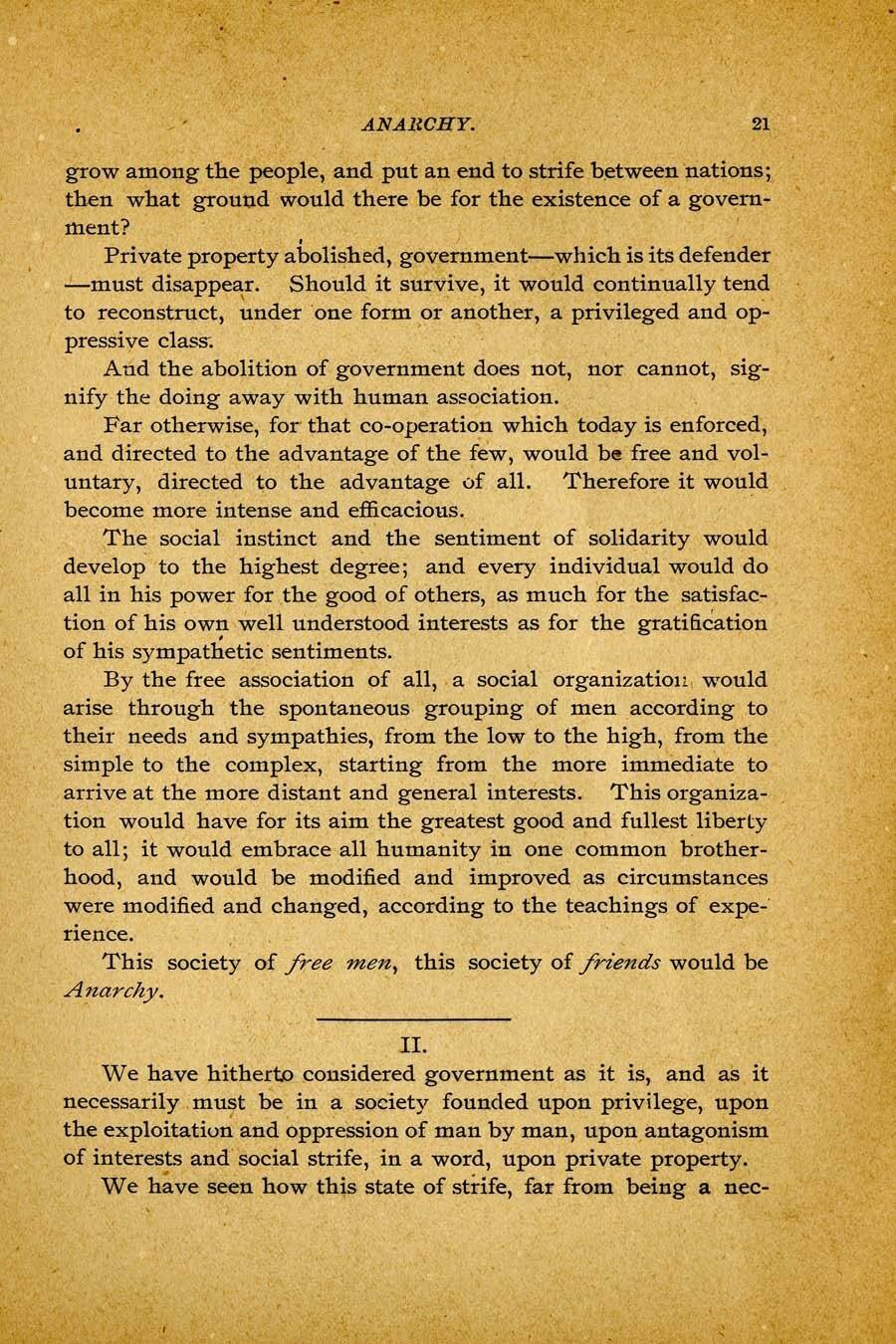grow among the people, and put an end to strife between nations; then what ground would there be for the existence of a government?
Private property abolished, government—which is its defender—must disappear. Should it survive, it would continually tend to reconstruct, under one form,or another, a privileged and oppressive class.
And the abolition of government does not, nor cannot, signify the doing away with human association.
Far otherwise, for that co-operation which today is enforced, and directed to the advantage of the few, would be free and voluntary, directed to the advantage of all. Therefore it would become more intense and efficacious.
The social instinct and the sentiment of solidarity would develop to the highest degree; and every individual would do all in his power for the good of others, as much for the satisfaction of his own well understood interests as for the gratification of his sympathetic sentiments.
By the free association of all, a social organization would arise through the spontaneous grouping of men according to their needs and sympathies, from the low to the high, from the simple to the complex, starting from the more immediate to arrive at the more distant and general interests. This organization would have for its aim the greatest good and fullest liberty to all; it would embrace all humanity in one common brotherhood, and would be modified and improved as circumstances were modified and changed, according to the teachings of experience.
This society of free men, this society of friends would be Anarchy.
II.
We have hitherto considered government as it is, and as it necessarily must be in a society founded upon privilege, upon the exploitation and oppression of man by man, upon antagonism of interests and social strife, in a word, upon private property.
We have seen how this state of strife, far from being a nec-
